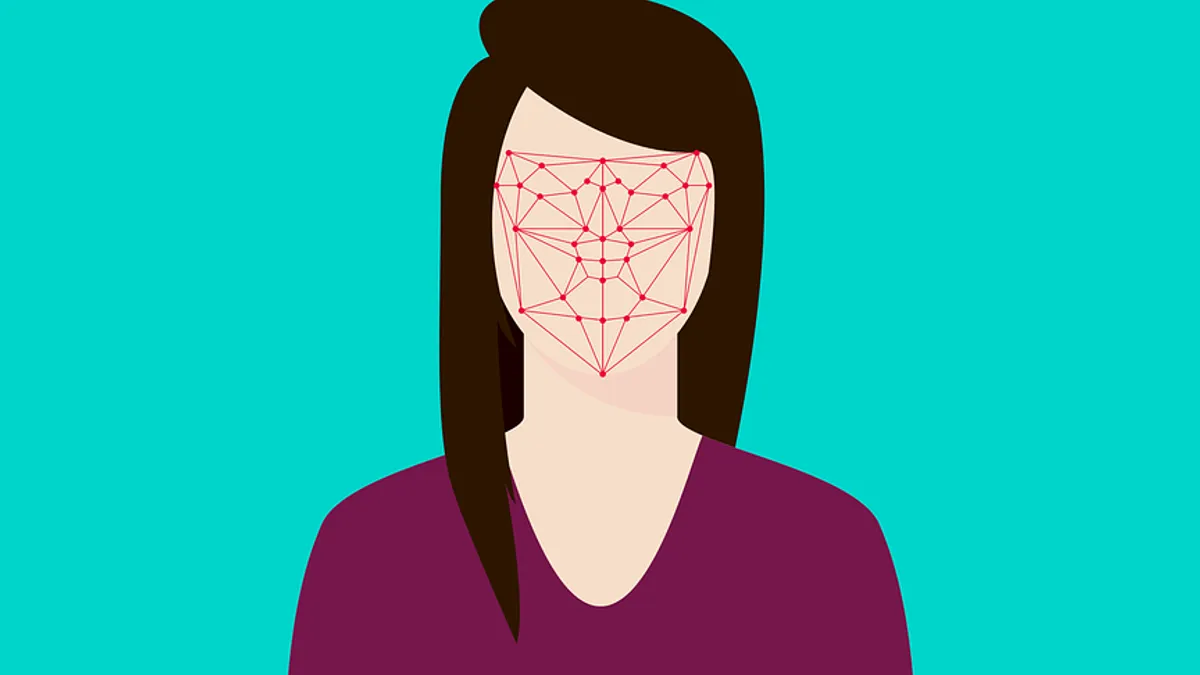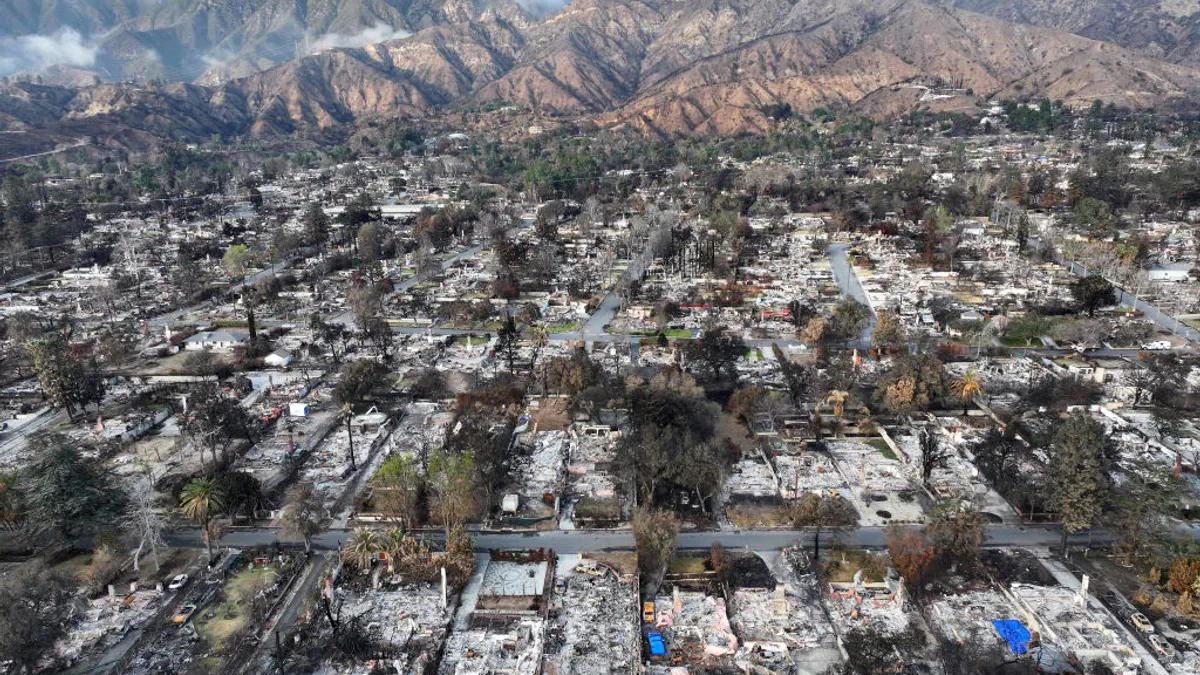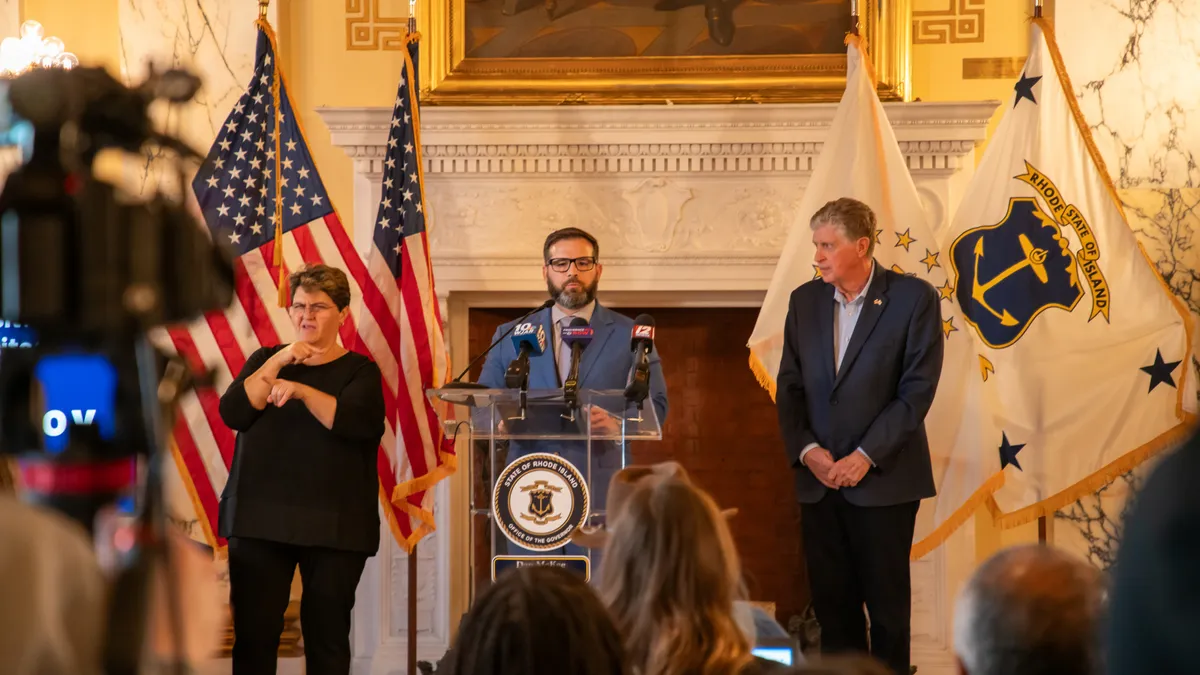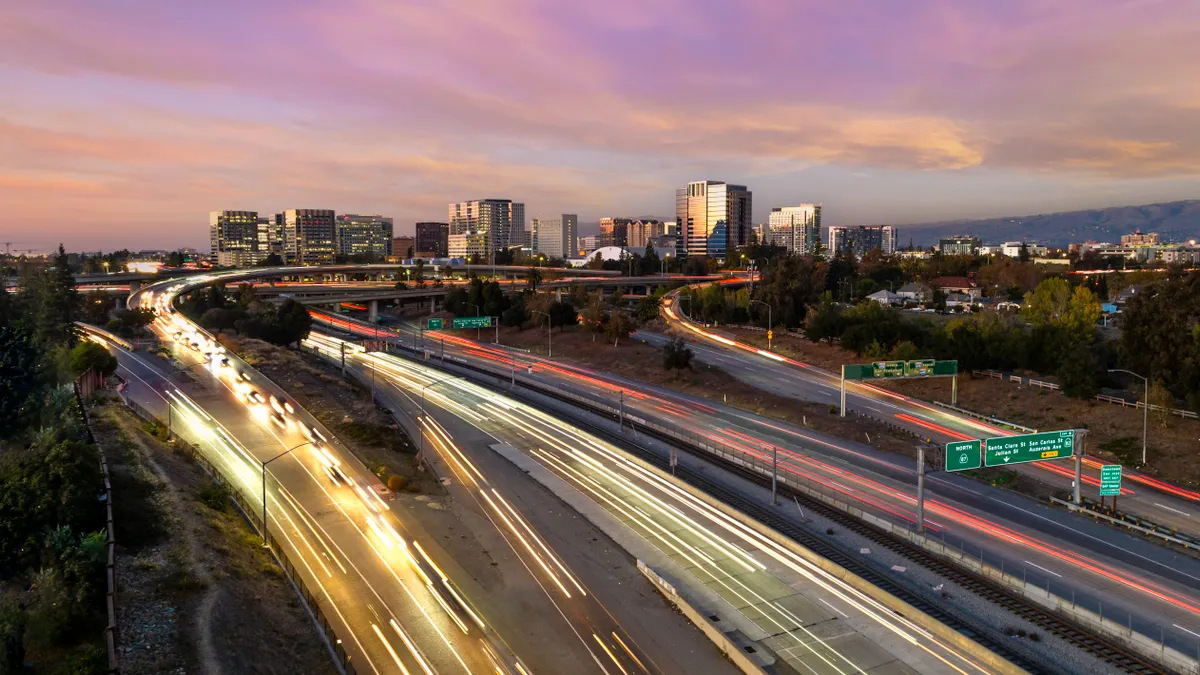WASHINGTON — The FBI and Transportation Security Administration (TSA) defended their use of controversial facial recognition technology in a hearing before the House Oversight Committee on Tuesday.
Meanwhile, some elected leaders blasted it as "not ready for primetime," calling for everything from an outright ban of its use to federal legislation regulating it.
"Today is a subject matter where we have a lot of common ground and a lot of agreement."

Jim Jordan, R-OH
U.S. Representative
The blowback was bipartisan, with Committee Chairman Elijah Cummings, D-MD, pledging to hold more hearings. "I'm a little freaked out by facial recognition," Rep. Rashida Tlaib, D-MI, said. In his opening statement, Ranking Member Jim Jordan, R-OH said, "Today is a subject matter where we have a lot of common ground and a lot of agreement."
Facial recognition tech is under fire from cities and representatives in Congress despite polls showing few Americans want to restrict it.
The San Francisco Board of Supervisors voted last month to ban city departments from using the technology, though it does not restrict private companies' or citizens' use of it. Politico reported that ban will also not apply to San Francisco International Airport's planned deployment of facial recognition cameras due to a loophole in the law that excludes Customs and Border Protection (CBP).
At the federal level, there is uncertainty surrounding the technology's further use, especially for law enforcement. During her testimony, Kimberly Del Greco, deputy assistant director of the FBI's Criminal Justice Information Services (CJIS), echoed the views of city police departments who say the technology has useful applications including tracking down suspects more quickly.
The FBI's CJIS program allows law enforcement agencies at all levels, that have signed a memorandum of understanding (MOU), to search its database of criminal mugshots and find a match using facial recognition technology, Del Greco said. The database can return a gallery of of between 2-50 "candidate" photos, which are manually reviewed for a match. The MOUs to cooperate with the FBI were signed before the conception of facial recognition, Del Greco said, which some committee members scoffed at.
While the FBI said it only has access to criminal mugshots, Gretta Goodwin, director of justice and law enforcement issues on the Homeland Security and Justice Team at the U.S. Government Accountability Office (GAO), refuted that. The FBI can access 640 million photos from various civil repositories, including the Department of Motor Vehicles (DMV), she said.
Goodwin and some elected leaders took the FBI to task for a report the GAO issued, which concluded that the "FBI has limited information on the accuracy of its face recognition technology capabilities." To remedy that, the GAO said the FBI must take extra steps to ensure privacy and accuracy, although of the six steps, only one has been completed due to legal questions from the U.S. Department of Justice (DOJ).
"You don't have answers on how it's working, how it was set up, what's coming out of it, whether it's hurting people, helping people."

Carolyn Maloney, D-NY
U.S. Representative
Rep. Carolyn Maloney, D-NY, said more needs to be done to show the technology works, especially given the civil liberty concerns.
"You don't have answers on how it's working, how it was set up, what's coming out of it, whether it's hurting people, helping people," Maloney said. "You don't even have information on whether it's aiding law enforcement in their goal for hunting down terrorists. We need more accountability."
Those civil liberty concerns over data collection and protection have fired up the American Civil Liberties Union (ACLU), which led a letter with over 60 privacy, civil liberties, civil rights, and investor and faith groups calling on Congress to institute a federal moratorium on facial recognition technology until lawmakers decided on permitted uses.
"Companies marketing this technology to the government boast that it can be used to track people in real time, reconstruct past movements from video footage, or identify a hundred individuals from a single photo," the groups wrote. "This capability threatens to create a world where people are watched and identified as they attend a protest, congregate outside a place of worship, visit a medical provider, or simply go about their daily lives."
The ACLU’s letter and committee members also raised concerns about facial recognition technology’s inaccuracy in identifying ethnic minorities and women. Studies from Georgia Tech have warned of technology's struggles in identifying those with darker skin, while Rep. Jimmy Gomez, D-CA, said more must be done to better identify transgender, nonbinary and gender non-conforming people.
The TSA's continued piloting of facial recognition technology in certain airports also came under fire. Austin Gould, assistant administrator for requirements and capabilities analysis, said it is used at security checkpoints on a limited basis to check IDs, primarily for international flights.
He testified that the technology's continued use will "enhance security and improve passenger experience," and that the use of the technology conforms with the Aviation and Transportation Security Act of 2001, which established the TSA and mandated that it be responsible for positively identifying air travelers before they board a plane.
Gould's indication that facial recognition technology is being used in baggage claim on a limited basis at Hartsfield-Jackson International Airport in Atlanta caught the attention of Rep. Mark Meadows, D-NC, who said the original legislation did not include such provisions.
"We never envisioned any of this," Meadows said. "I'm looking at the very statute myself here, and how can you look and suggest that the statute gives you the ability invade the privacy of American citizens?"
Cummings said the committee would have another hearing on facial recognition technology in the next couple of months, at which he said members would check on the FBI's progress implementing the GAO's recommended actions.




















